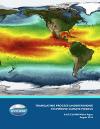All Announcements

White paper on translating process understanding for climate models
A new white paper has been released based on a 2015 US CLIVAR workshop, "Translating Process Understanding to Improve Climate Models." The document summarizes responses from a community questionnaire, workshop presentations and discussions, and recommendations to help inform the broad research community and agency considerations.

Executive Director sought for CLIVAR International Project Office
The First Institute of Oceanography (FIO) and the World Climate Research Programme (WCRP) invite applications for the post of Executive Director of the International CLIVAR Project Office, based in Qingdao, China. The Executive Director will be responsible for a range of activities including fulfilling CLIVAR priorities as part of WCRP’s objectives and goals, managing the project office, participating in relevant meetings and workshops, promoting CLIVAR objectives, and seeking sources of additional funding. The position is available starting October 1.

Intra-Americas Seas workshop report
This report highlights the virtual workshop that was held over three half-day sessions (September 9-11, 2015) and featured 47 oral and poster presentations that spanned observational and modeling studies and timescales from the paleoclimate to secular change, and also covered a wide range of phenomenological studies (e.g., tropical cyclones, mid-summer droughts, low level jets) for the Intra-Americas Seas.

CLIVAR-relevant sessions at AGU Fall Meeting
AGU Fall Meeting will be held this year from December 12 - 16. In preparation for the meeting, the US CLIVAR Project Office has compiled a condensed list of sessions that are relevant to the community. Organized according to core science topics and research challenges, the list of sessions is not intended to be exhaustive, but to help the community digest the collection of the hundreds of sessions and events.

Webinar: What's causing the 'Warm Arctic, Cold Continents" pattern?
Recent extreme cold weather outbreaks across the mid-latitudes have been the subject of great interest to the public and debate among the scientific community, with some researchers proposing a link to the warming Arctic. To learn about the latest observational and modeling studies that examine these linkages, join Judah Cohen (AER Inc./MIT) and Lantao Sun (U. Colorado, Boulder/NOAA ESRL) in a webinar on July 13.

2015 Summit Report now available
The 2015 US CLIVAR Summit was held in Tucson, Arizona on August 4-6 and brought together more than 50 participants from the scientific community and federal agencies. This report highlights presentations and discussion at the Summit to review progress, identify opportunities, and develop strategies to advance US CLIVAR goals.

Early bird registration closes June 15

Variations, Spring 2016: A Tale of Two Blobs
From 2013 to 2015, the scientific community and the media were enthralled with two anomalous sea surface temperature events, both getting the moniker the “Blob,” although one was warm and one was cold. These events occurred during a period of record-setting global mean surface temperatures. In this spring edition, contributors focus on the timing and extent, possible mechanisms, and impacts of these unusual ocean temperature anomalies, and what we might expect in the future as climate changes.

Call for nominations to International CLIVAR panels
International CLIVAR seeks nominations for the Scientific Steering Group (SSG) and panels. Nominations should support expertise need to fulfill a panel's terms of reference. Nominations with diverse backgrounds are encouraged to apply, as well as early career scientists. The deadline for nominations (appointments start in 2017 for panels and 2018 for the SSG) is 20 July 2016.

Variations webinar series: A Tale of Two Blobs
The next edition of Variations will feature a series of articles that highlights two recent sea surface temperature events—the warm blob in the North Pacific and the cold blob in the North Atlantic. The articles will highlight recent work, theories, and advancements in understanding these phenomena. The authors of the articles will be giving two distinct webinars (one on each region) to discuss these topics. The North Pacific Warm Blob webinar will be on Tuesday, June 7 at 1:00 pm EDT and the North Atlantic Cool Blob webinar will be on Friday, June 10 at 12:00 pm EDT.
